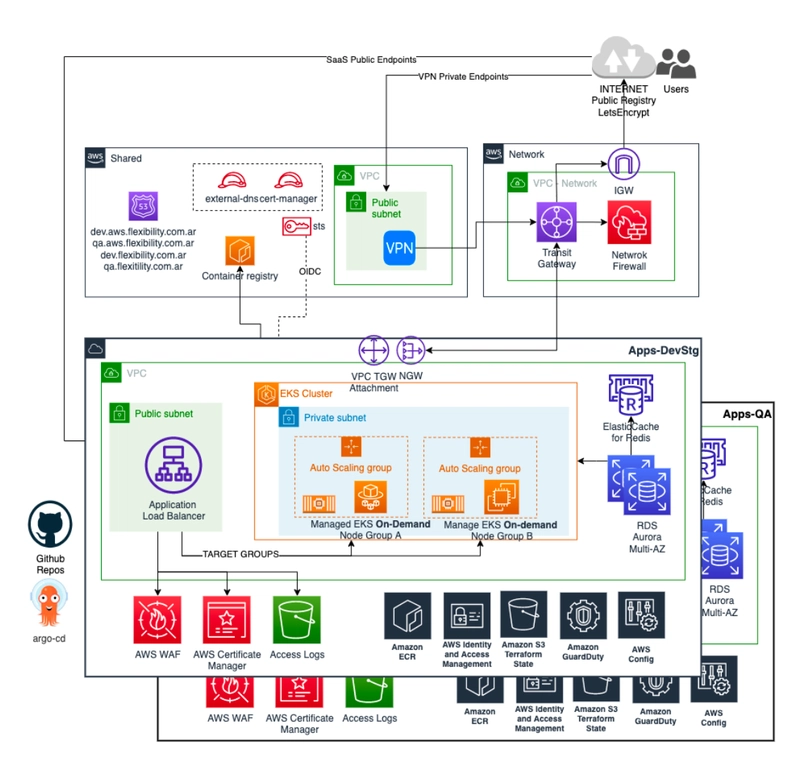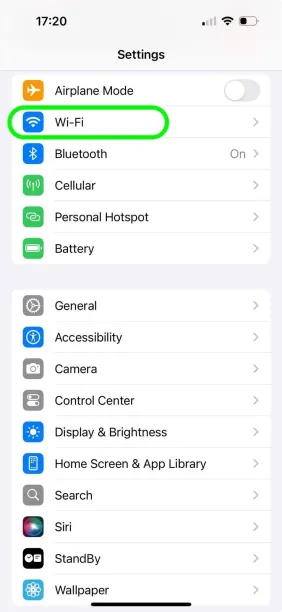Boost Customer Verification with a Phone Validator API: A Must-Have for E-Commerce Platforms
In the fast-paced world of e-commerce, customer trust and seamless user experience are crucial for success. Ensuring the accuracy of customer data during registration or checkout is not only vital for operational efficiency but also for safeguarding your platform against fraudulent activities. One effective way to enhance data accuracy and streamline customer verification is by integrating a phone validator API. This technology has become indispensable for developers and SaaS companies aiming to optimize their e-commerce platforms. What Is a Phone Validator API? A phone validator API is a tool that allows businesses to verify the authenticity of a phone number in real-time. By connecting with global telecom databases, this API checks the validity, type (mobile, landline, VoIP), and status (active or inactive) of phone numbers. For developers working on e-commerce platforms, this ensures that customers input accurate information, reducing issues like failed SMS notifications and delayed customer interactions. For example, suppose a customer enters a typo in their phone number during account creation. Without validation, you risk sending OTPs or important updates to an incorrect recipient. By integrating an API for phone number validation, e-commerce businesses can ensure only accurate data enters their systems. Why E-Commerce Platforms Need Phone Number Validation E-commerce platforms are particularly vulnerable to inaccuracies in customer data. Whether it’s for delivering products or sending promotional offers, the importance of verified customer information cannot be overstated. Here are some reasons why phone number validation is crucial for e-commerce platforms: 1. Enhance Customer Experience Sending SMS notifications for order confirmations, delivery updates, and promotional offers has become a standard practice. This API ensures these messages reach the right recipients, enhancing the overall user experience. 2. Prevent Fraud and Spam Fraudulent accounts and fake orders are significant challenges in the e-commerce space. By implementing an API for phone number validation, you can filter out fake or inactive phone numbers during the registration process, reducing the risk of fraud. 3. Improve Operational Efficiency Failed deliveries and miscommunication due to incorrect phone numbers can lead to unnecessary costs and wasted resources. Phone validation helps e-commerce platforms operate more efficiently by ensuring accurate customer data. 4. Regulatory Compliance Many regions require businesses to verify customer information for regulatory purposes, especially when handling sensitive customer data. A phone verification API simplifies compliance by providing verified and accurate phone number data. How Does a Phone Validator API Work? A phone validator API integrates seamlessly with your existing systems, whether it’s a registration form, checkout page, or CRM platform. Here’s a brief overview of how it works: Input: A customer enters their phone number during registration or checkout. Validation: The API sends the number to a telecom database to verify its validity, type, and status. Output: The API returns the result to your system, confirming whether the number is valid and active. For developers, the implementation is straightforward, thanks to comprehensive documentation and sample codes provided by most API providers. Key Features to Look for in a Phone Validator API When choosing an API for phone number validation, consider the following features: Global Coverage: Ensure the API supports phone numbers from all regions to cater to a diverse customer base. Real-Time Validation: Real-time processing is critical for seamless user experiences. Detailed Insights: Look for APIs that provide information on the type of phone number and its active status. Ease of Integration: APIs with clear documentation and SDKs make integration faster and hassle-free. Recommended Resources for Developers Here are some valuable resources to help you understand and implement phone number validation: Twilio Phone Number Lookup API: A popular choice for validating phone numbers globally. IPstack: While primarily an IP geolocation API, ipstack also provides auxiliary features to complement phone number validation. NumVerify API: Offers extensive data on phone numbers, including carrier and line type information. AWS Pinpoint: A comprehensive solution for SMS and voice communication, with phone number validation capabilities. Implementation Tips for Developers Integrating a phone validator API into your e-commerce platform requires careful planning to maximize its benefits. Here are some best practices: 1. Choose the Right API Select an API that aligns with your business needs and offers robust documentation. Consider factors like global coverage, reliability, and cost. 2. Test Thoroughly Before deploying the API, conduct extensive testing to ensure it works seamlessly with your platform. Va

In the fast-paced world of e-commerce, customer trust and seamless user experience are crucial for success. Ensuring the accuracy of customer data during registration or checkout is not only vital for operational efficiency but also for safeguarding your platform against fraudulent activities. One effective way to enhance data accuracy and streamline customer verification is by integrating a phone validator API. This technology has become indispensable for developers and SaaS companies aiming to optimize their e-commerce platforms.
What Is a Phone Validator API?
A phone validator API is a tool that allows businesses to verify the authenticity of a phone number in real-time. By connecting with global telecom databases, this API checks the validity, type (mobile, landline, VoIP), and status (active or inactive) of phone numbers. For developers working on e-commerce platforms, this ensures that customers input accurate information, reducing issues like failed SMS notifications and delayed customer interactions.
For example, suppose a customer enters a typo in their phone number during account creation. Without validation, you risk sending OTPs or important updates to an incorrect recipient. By integrating an API for phone number validation, e-commerce businesses can ensure only accurate data enters their systems.
Why E-Commerce Platforms Need Phone Number Validation
E-commerce platforms are particularly vulnerable to inaccuracies in customer data. Whether it’s for delivering products or sending promotional offers, the importance of verified customer information cannot be overstated. Here are some reasons why phone number validation is crucial for e-commerce platforms:
1. Enhance Customer Experience
Sending SMS notifications for order confirmations, delivery updates, and promotional offers has become a standard practice. This API ensures these messages reach the right recipients, enhancing the overall user experience.
2. Prevent Fraud and Spam
Fraudulent accounts and fake orders are significant challenges in the e-commerce space. By implementing an API for phone number validation, you can filter out fake or inactive phone numbers during the registration process, reducing the risk of fraud.
3. Improve Operational Efficiency
Failed deliveries and miscommunication due to incorrect phone numbers can lead to unnecessary costs and wasted resources. Phone validation helps e-commerce platforms operate more efficiently by ensuring accurate customer data.
4. Regulatory Compliance
Many regions require businesses to verify customer information for regulatory purposes, especially when handling sensitive customer data. A phone verification API simplifies compliance by providing verified and accurate phone number data.
How Does a Phone Validator API Work?
A phone validator API integrates seamlessly with your existing systems, whether it’s a registration form, checkout page, or CRM platform. Here’s a brief overview of how it works:
Input: A customer enters their phone number during registration or checkout.
Validation: The API sends the number to a telecom database to verify its validity, type, and status.
Output: The API returns the result to your system, confirming whether the number is valid and active.
For developers, the implementation is straightforward, thanks to comprehensive documentation and sample codes provided by most API providers.
Key Features to Look for in a Phone Validator API
When choosing an API for phone number validation, consider the following features:
Global Coverage: Ensure the API supports phone numbers from all regions to cater to a diverse customer base.
Real-Time Validation: Real-time processing is critical for seamless user experiences.
Detailed Insights: Look for APIs that provide information on the type of phone number and its active status.
Ease of Integration: APIs with clear documentation and SDKs make integration faster and hassle-free.
Recommended Resources for Developers
Here are some valuable resources to help you understand and implement phone number validation:
Twilio Phone Number Lookup API: A popular choice for validating phone numbers globally.
IPstack: While primarily an IP geolocation API, ipstack also provides auxiliary features to complement phone number validation.
NumVerify API: Offers extensive data on phone numbers, including carrier and line type information.
AWS Pinpoint: A comprehensive solution for SMS and voice communication, with phone number validation capabilities.
Implementation Tips for Developers
Integrating a phone validator API into your e-commerce platform requires careful planning to maximize its benefits. Here are some best practices:
1. Choose the Right API
Select an API that aligns with your business needs and offers robust documentation. Consider factors like global coverage, reliability, and cost.
2. Test Thoroughly
Before deploying the API, conduct extensive testing to ensure it works seamlessly with your platform. Validate various scenarios, including invalid and international numbers.
3. Secure Data Handling
Since phone numbers are sensitive data, ensure that your API provider follows stringent security protocols. Look for APIs that offer encryption and comply with data protection regulations.
4. Monitor Performance
After implementation, monitor the API’s performance to identify any issues or opportunities for optimization. Most API providers offer analytics dashboards for tracking usage and performance metrics.
The Future of Phone Validation in E-Commerce
As e-commerce continues to grow, the demand for accurate and reliable customer verification tools will only increase. Technologies like artificial intelligence and machine learning are expected to enhance phone validation APIs, making them even more efficient and accurate. For developers and SaaS companies, staying ahead of these trends will be critical to maintaining a competitive edge.
Conclusion
A phone validator API is no longer a luxury for e-commerce platforms—it’s a necessity. By ensuring accurate customer data, these APIs help businesses enhance user experience, reduce fraud, and improve operational efficiency. For developers and SaaS companies, integrating an API for phone number validation into your platform can significantly boost its reliability and user trust. By leveraging this powerful tool, e-commerce platforms can focus on what truly matters: delivering exceptional value to their customers.
What's Your Reaction?



























_Vladimir_Stanisic_Alamy.jpg?#)
























![Kicked Out Of His Seat—Delta Passenger Forced To Move For A Dog [Roundup]](https://viewfromthewing.com/wp-content/uploads/2024/12/delta_dog_in_bulkhead-transformed.jpg?#)































